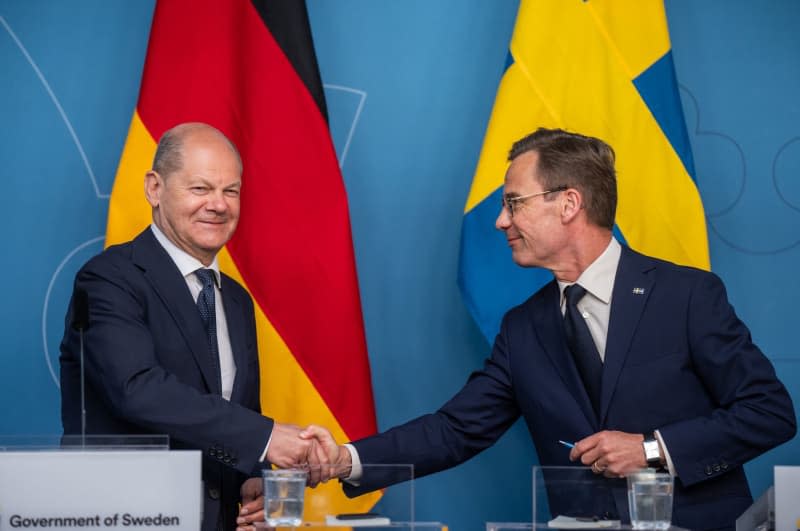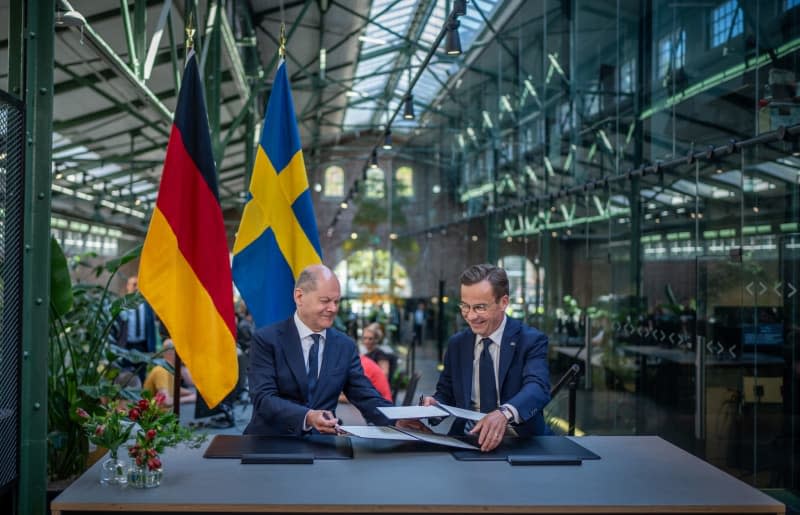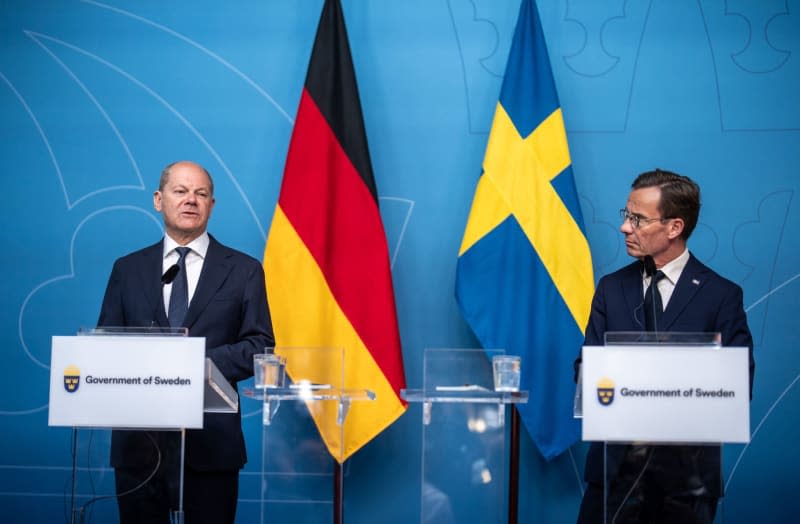Germany's Scholz comes out against Swedish model of conscription

- Oops!Something went wrong.Please try again later.
German Chancellor Olaf Scholz does not support the idea of mirroring Sweden and reintroducing compulsory military service.
Scholz visited Stockholm on Tuesday and was asked by journalists if matching Sweden's decision could help fill a shortage of personnel in Germany's armed forces.
"Ultimately, it's about how we can convince enough men and women to work in the Bundeswehr and find a job for themselves there," Scholz said.
Germany did have a form of conscription until 2011.
Scholz added: "That would no longer work. There were many more soldiers, there were many more barracks, there was much more infrastructure that had to be built. None of that is needed today, nor is it a plan that anyone is pursuing."
The Bundeswehr is to be increased from 182,000 to 203,000 soldiers by 2031. German Defence Minister Boris Pistorius is mulling his options.
"Proposals are being tossed around," Scholz said. "But they are not at all comparable to what we used to have in Germany. That's why it's good that we're waiting until there's a balanced idea."
The Christian Democrats were in power when German suspended conscription 13 years ago but last week voted to gradually reverse the decision if it wins Germany's 2025 elections.
Sweden reintroduced compulsory military service in 2017 after it had been suspended in 2010.
"Of course, every country makes its own decision on how it recruits and deploys soldiers. I think we have found a model for Sweden that is suitable," Swedish premier Ulf Kristersson said.
In Sweden, not all young men and women in a year group are conscripted. After everyone receives a questionnaire, only some are invited for training. A select group then receives offers of employment.



